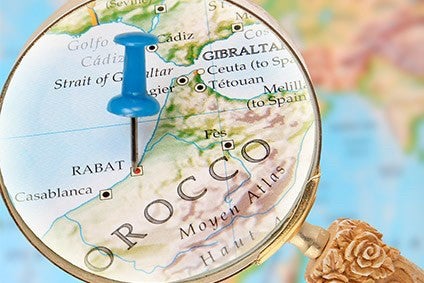
Changes to some textile and apparel rules of origin under the United States-Morocco Free Trade Agreement (USMFTA) are due to come into effect from 1 April, meaning certain woven women’s garments can use inputs from outside the two countries and still qualify for duty-free treatment.
The changes were requested by the Government of Morocco amid concerns that US and Moroccan producers are unable to produce certain fabrics in commercial quantities, promptly.
According to the re:source by just-style strategic sourcing tool, the USMFTA has “yarn-forward” rules of origin, which means that fibres may be produced anywhere, but each component starting with the yarn used to make the garments must be formed within the free trade area. This rule is sometimes called “triple transformation,” as it requires that spinning of the yarn or thread, weaving or knitting of the fabric, and assembly of the final apparel garments all occur within the free trade area.
The Office of the US Trade Representative (USTR) now says that from 1 April, changes to the product-specific rules for Chapter 62 are effective for the following Moroccan goods entered or withdrawn from warehouse for consumption:
- Women’s or girls’ cotton corduroy skirts and divided skirts classified in subheading 6204.52, of cotton corduroy fabrics classified in subheading 5801.22;
- Women’s or girls’ man-made fibre blouses, shirts and shirt-blouses classified in subheading 6206.40, of polyester corduroy fabrics classified in subheading 5801.32;
- Women’s trousers classified in subheading 6204, of synthetic bi-stretch fabric containing 45-52% by weight of polyester, 45-52% by weight of rayon and 1-7% by weight of spandex, classified in subheading 5515.11;
- Women’s trousers classified in subheading 6204, of woven fabric containing 60-68% by weight of polyester, 29-37% by weight of rayon and 1-7% by weight of spandex, classified in subheading 5515.11;
- Women’s trousers classified in subheading 6204, of woven herringbone fabric containing 31-37% by weight of viscose rayon, 17-23% by weight of polyester, 17-23% by weight of cotton, 13-19% by weight of wool, 5-11% by weight of nylon and 1-6% by weight of spandex, classified in subheading 5408.33.
According to US trade data, the volume of US apparel imports from Morocco rose 4% in 2018 to 18.5m SME (square metres equivalent) and was up 4.2% in value to US$136.1m.

US Tariffs are shifting - will you react or anticipate?
Don’t let policy changes catch you off guard. Stay proactive with real-time data and expert analysis.
By GlobalData


